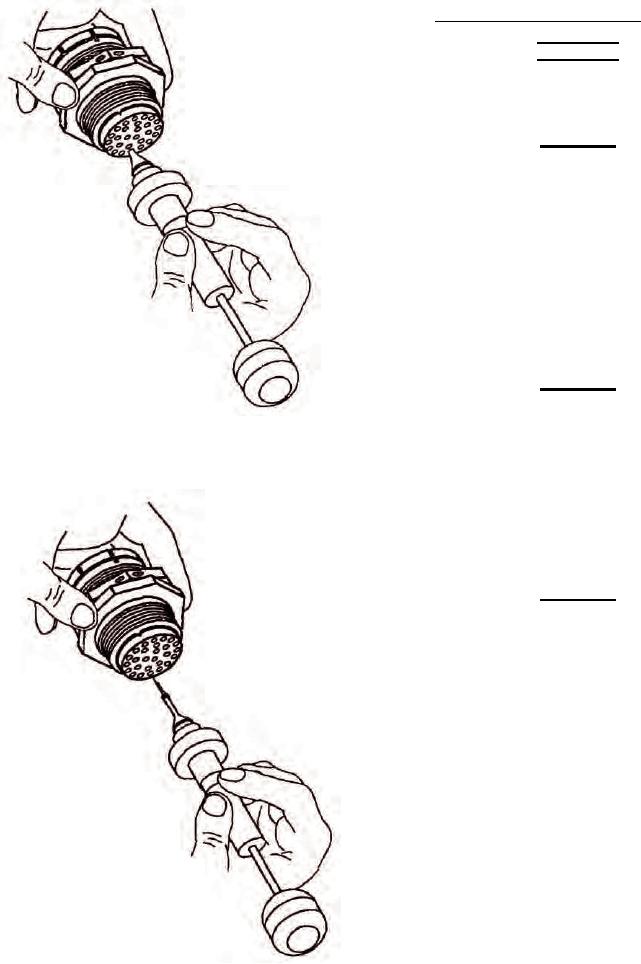
NAVAIR 01-1A-505-2
010 02
TO 00-25-255-1
Page 25
TM 1-1500-323-24-2
112. Broken Wire Contact Removal.
WARNING
Metal tool tips are sharp and can cause injury
to personnel and/or damage to connectors.
CAUTION
Present metal tooling in some instances has
damaged the wire sealing grommet at the end
of the connectors. Plastic tools are preferred.
Caution should be exercised in the use of
tooling, as connector damage can occur.
a.
Select correct removal tool (Table 6).
b. Inspect tips of metal tools for nicks, burrs, and
distortion of probe before use.
CAUTION
Removal of a contact with a broken Wire shall
Figure 24. Unlocking Contact Retention Mechanism
not be attempted with an unwired removal
With Unwired Removal Tool
tool. Use of unwired removal tools require that
the tip be jammed onto the contact wire barrel.
If wire strands occupy wire barrel, the tool and
connector may be damaged.
Insert tip of removal tool about 1/8 inch into
c.
cavity at rear of connector.
CAUTION
Wire strands may be encountered at any point
up to 5/16 inch of tool insertion. It is important
not to jam any strands of wire up to this point.
Withdraw removal tool anytime during
insertion when it cannot be advanced into
connector using these procedures. Inspect tool
tip for nicks, cracks, mushrooming, and other
damage that will prevent its functioning.
Replace removal tool and repeat procedure, if
required.
NOTE
Refer to Figure 26 for approximate dimensions
of a size 22 contact and cavity. The dimensions
in this procedure are based on a size 22 contact.
d. Gently insert removal tool into cavity in about
1
Figure 25. Extracting Contact from Connector
is felt.

